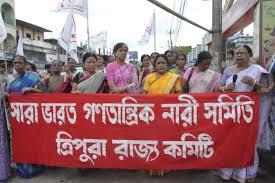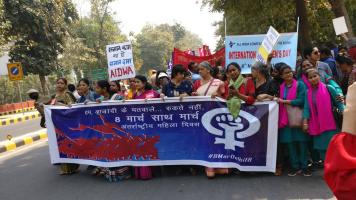On SC Verdict on Two-Child Norm
THE Supreme Court judgement upholding the two-child norm for contesting panchayat elections is in contradiction to the Cairo declaration, to which India is a signatory, and to the National Population Policy charter that eschews coercive methods in population control.
| THE Supreme Court judgement upholding the two-child norm for contesting panchayat elections is in contradiction to the Cairo declaration, to which India is a signatory, and to the National Population Policy charter that eschews coercive methods in population control. By giving its stamp of approval on laws of some state governments that are highly discriminatory in nature, it justifies the extension of economic and social inequality to democratic process, creating an underclass that is deprived of the basic right to participate in elected decision making bodies. |
| |
| There can be no quarrel with the court's rejection of the preposterous plea made by some complainants that since they had the right to four wives the two-child norm could not be applied to them. |
| |
| However, the reasoning given by the court goes far beyond this objectionable plea, since it justifies disincentives to control family size as being "in the national interest." The court's perception of the 'national interest' ignores the interests of the majority who make up the nation. Global experience, as also the experience of our own country, shows that family size is linked to factors like control of infant mortality, poverty eradication, literacy, access to safe contraception and so on. When these issues are tackled, as is the example of Kerala, then couples opt for a smaller family. In the absence of such measures, a regime of disincentives is actually punishing the poor for their poverty. The Supreme Court judgement has wider implications that are a throwback to the logic of Emergency days when coercive methods of sterilization were justified as being in the 'national interest.' It gives sanction to and opens the floodgate for cruel strategies employed by many state governments of depriving poor families who have more than two children, of government benefits including ration cards, government jobs and so on. |
| |
| In a country where there is a skewed sex ratio based on cultures of son-preference, a two-child norm will lead to further distortions. In many cases women have little choice over family size and therefore are being punished for factors beyond their control. |
| |
| We oppose the judgement of the Supreme Court. We demand that parliament reassert the basic premise of the Cairo declaration and the National Population Policy against coercion, disincentives and targets. |






